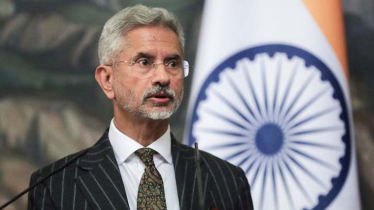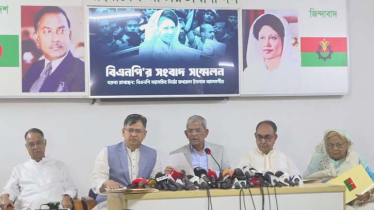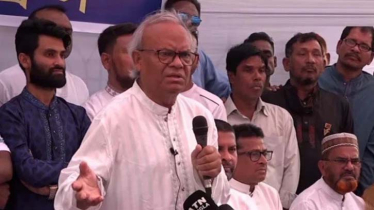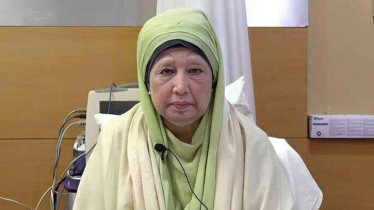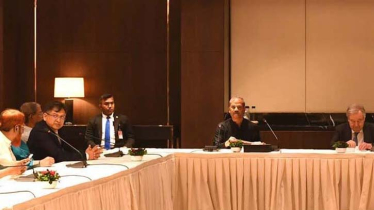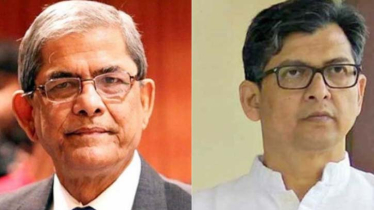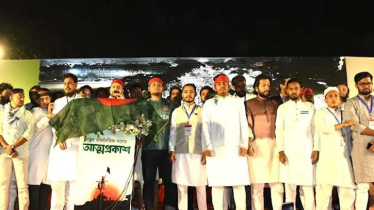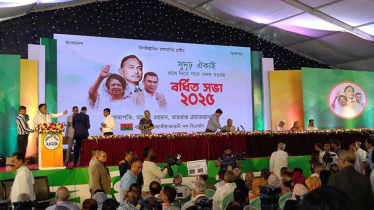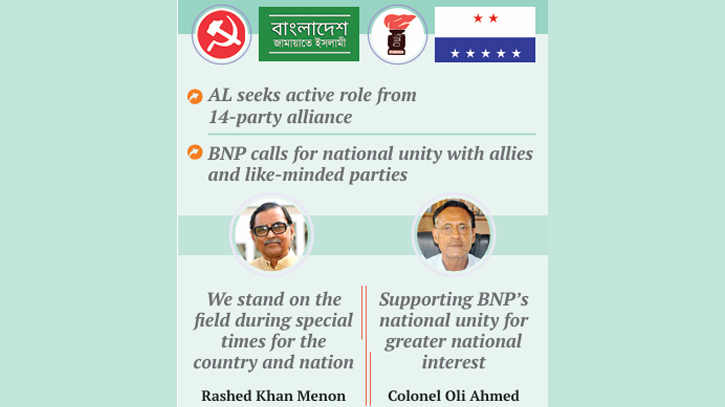
Photo: Messenger
Smaller parties have suddenly gained importance in politics. Amid the ongoing situation created by the quota reform movement, the Awami League (AL) wants to see its allied 14-party coalition playing an active role. On Monday, Prime Minister Sheikh Hasina held a meeting with the leaders of these allied parties.
Meanwhile, in the current situation, the BNP has called for national unity with its one-point demand for the fall of the government. While the value of allies usually increases before elections, this time the context is entirely different. Therefore, various discussions are now taking place in the political arena regarding this issue.
The allies of both the ruling AL and the BNP say that although they may not be in touch throughout the year, the major parties contact them during “special situations.” Nevertheless, they remain active during significant times for the country and nation.
In Bangladesh's political landscape, smaller political parties are not always visible in the field. However, before elections or during any special situation in the country, the two major political parties—the AL and the BNP—become eager to have their allies or like-minded parties by their side. This time, too, the same picture has been seen in the context of the quota movement.
It has been learned that the anti-discrimination student movement for quota reform took to the streets at the beginning of this month. However, it manifested on a larger scale towards the end of the second week. Initially, the students' programme was called 'Bangla Blockade.' Later, they announced a 'Complete Shutdown' programme, which at one stage turned into a conflicting situation. There were many casualties. During the three to four days of that movement, miscreants carried out extensive vandalism and arson across the country. The internet and social media were shut down. Subsequently, the government imposed a curfew from the night of July 19 and declared general holidays. Widespread arrests are also taking place. After the deployment of the army, the situation started to normalize.
At this time, last Friday, the BNP called for all anti-government parties to unite on one platform for a movement. The party's Secretary General, Mirza Fakhrul Islam Alamgir, has called for building a national unity movement by bringing together opposition Jamaat and right- and left-leaning political parties and social organisations on one platform, demanding the government's resignation. So far, 31 like-minded or allied political parties or organisations have supported this call. The number of supporting parties is increasing daily.
On the other hand, the Awami League has urged its allied 14-party coalition to be active in the field. Amir Hossain Amu, the coordinator of the 14-party alliance and a senior Awami League leader, has spoken with the leaders of the allied parties in several rounds. He has asked the 14-party alliance to be in the field to counter BNP-Jamaat's activities that are leveraging the quota movement. Responding to his call, many of the allies have taken to the field. Recently, Workers Party President Rashed Khan Menon and many other leaders were seen with Amir Hossain Amu in various programmes, including hospital visits. Most recently, on Monday afternoon, Prime Minister Sheikh Hasina held a meeting with the leaders of the 14-party alliance. In that meeting, she advised the allies to face the situation unitedly in the field.
When the usually peaceful country and politics suddenly became heated, the value of smaller political parties increased for the two major parties. This is being widely discussed in the political arena. Regarding this, Amir Hossain Amu told The Daily Messenger, “We always sit together and discuss various issues. However, during special troubles, we meet a bit more frequently. This time is no exception.”
He also said, “In the current context, we have called on our allies to be in the field.”
Rashed Khan Menon, President of the Workers Party, told The Daily Messenger, “We don't wait for someone to evaluate us. As politicians, we stay in the field during special times for the country and nation.”
Mostafa Jamal Haider, chief of the BNP-supported 12-party alliance and chairman of Jatiya Party (Zafar), told The Daily Messenger, “We have been in the BNP-led alliance for a long time. We carry out programmes under BNP's leadership. Besides, the party has its own programmes. However, during special movements and struggles, BNP calls for playing a role by staying in the field. This time too, in the special context, BNP has called for national unity. We have responded to that call. In the coming days, we will stay in the field under BNP's leadership to the fullest extent on the question of the country and nation.”
Colonel (Retd.) Oli Ahmed, President of LDP, which is not in the BNP-led alliance but is like-minded with the party, told The Daily Messenger, “We have responded to BNP's call for national unity for the greater interest of the country and nation. As a freedom fighter from the battlefield, we did not want such a country. We want a truly democratic country.”
Messenger/Disha

